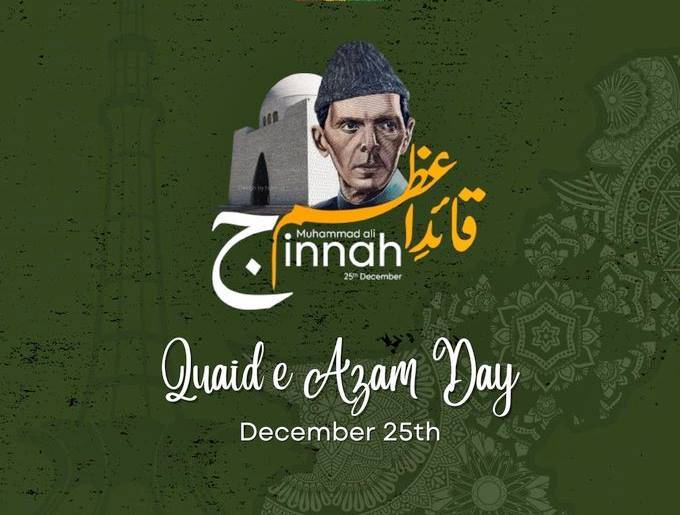By Imtiaz Hussain Abro
Pakistan celebrates 147th birth anniversary of Quaid-i-Azam Mohammad Ali Jinnah.
Today, Pakistan commemorates the 147th birth anniversary of its founder, Quaid-i-Azam Mohammad Ali Jinnah, with traditional enthusiasm and fervor. As the nation observes a public holiday, various state-level activities are planned to highlight Jinnah’s enduring political struggle and his guiding principles of unity, faith, and discipline.
On December 25, special prayers were offered for the security, progress, and prosperity of the South Asian nation. Following the annual tradition, a change of guards ceremony will take place at Quaid’s mausoleum in Karachi.
Special programs and events have been organized to remember Jinnah’s life and legacy. In separate messages paying tribute to Quaid-e-Azam Muhammad Ali Jinnah, Pakistan’s president, Dr. Arif Alvi, and interim prime minister Anwaar ul Haq Kakar urged the nation to follow in Jinnah’s footsteps to build a strong and prosperous nation.
Born on December 25, 1876, to a well-off family in Karachi, Mohammad Ali Jinnah is the founding father of Pakistan and served as the first governor-general after independence in 1947. A multifaceted luminary, Jinnah was a noted lawyer, seasoned politician, visionary statesman, and above all, the visionary founder of Pakistan. His illustrious journey makes him the greatest statesman of the sub-continent for Pakistanis.
Jinnah led the All-India Muslim League from 1913 until Pakistan’s independence on August 14, 1947. He then became Pakistan’s first Governor-General, a position he held until his untimely demise on September 11, 1948.
His ascent in Indian politics was marked by efforts to foster Hindu-Muslim unity, culminating in the pivotal 1916 Lucknow Pact. Jinnah played a pivotal role in the All India Home Rule League and presented a visionary fourteen-point constitutional reform plan. His evolving vision embraced the Two-Nation Theory, advocating for the creation of a separate Muslim state, as articulated in the Lahore Resolution.
The failure of the Cabinet Mission Plan led to Jinnah’s decisive action in calling for Direct Action Day, resulting in widespread communal violence. The impasse between the Indian National Congress and the Muslim League ultimately led to the historic decision for the independence of both Pakistan and India.
As Pakistan’s inaugural Governor-General, Jinnah worked to establish the foundations of the new state, craft national policies, and oversee the rehabilitation of millions of Muslim refugees. His passing in September 1948 marked the conclusion of a remarkable life dedicated to the pursuit of his vision. Jinnah’s legacy endures as a source of profound reverence in Pakistan, even as opinions about him in India vary. In the words of his biographer, Stanley Wolpert, Muhammad Ali Jinnah remains undeniably Pakistan’s greatest leader, guiding a nation to its destiny and securing a distinct and cherished place in history.

